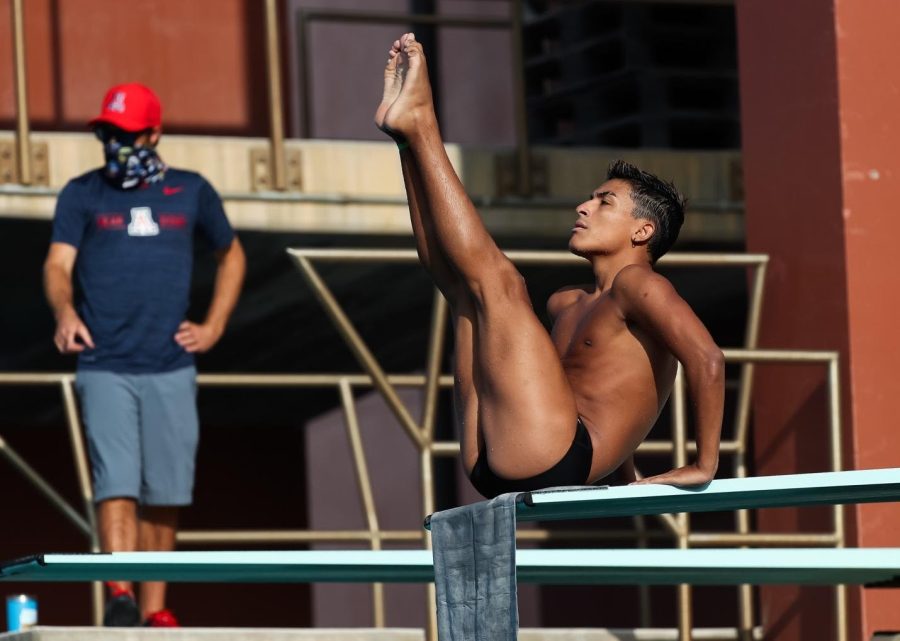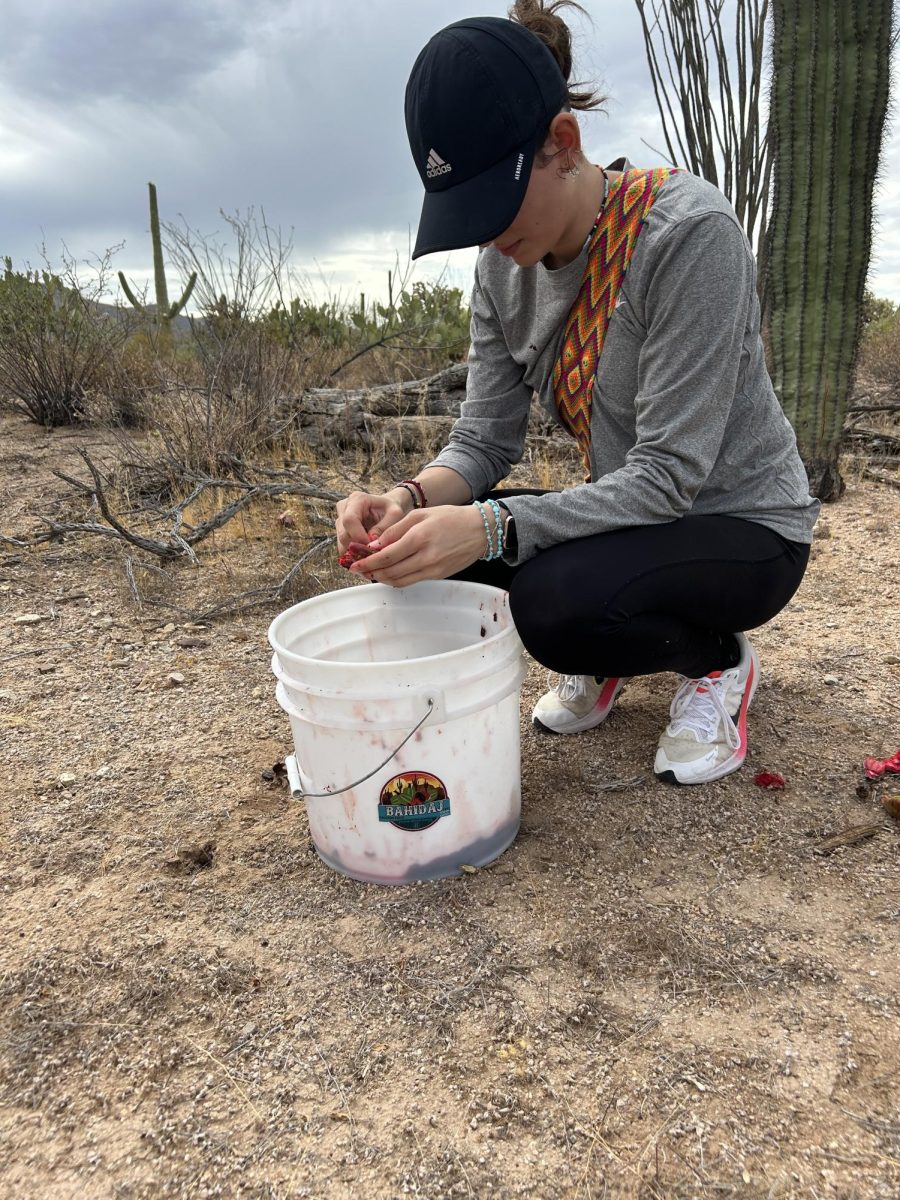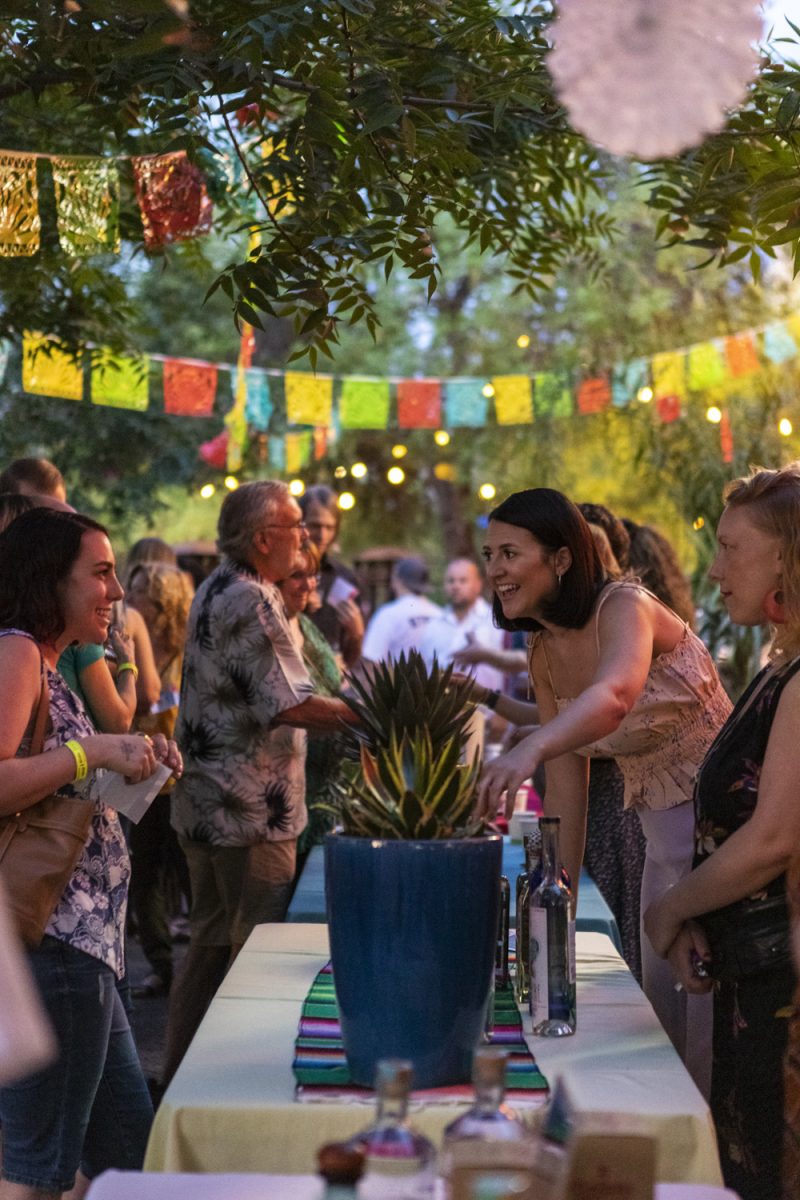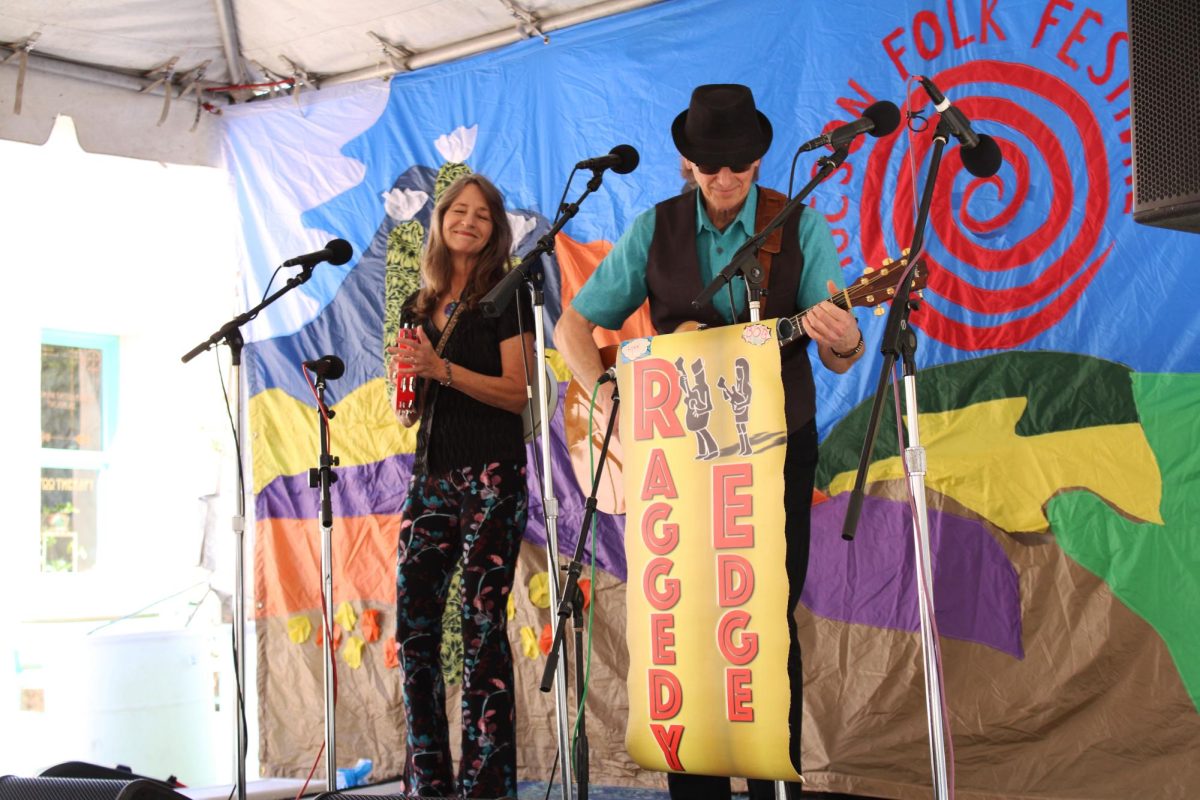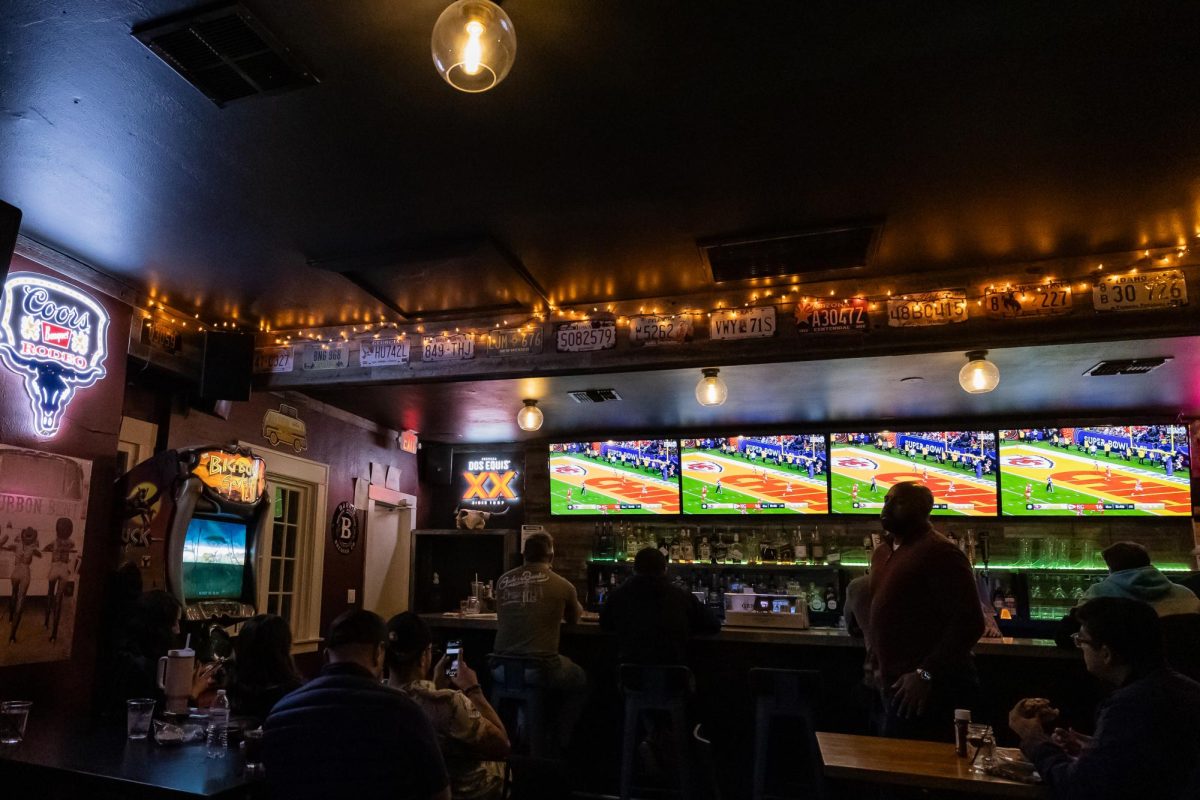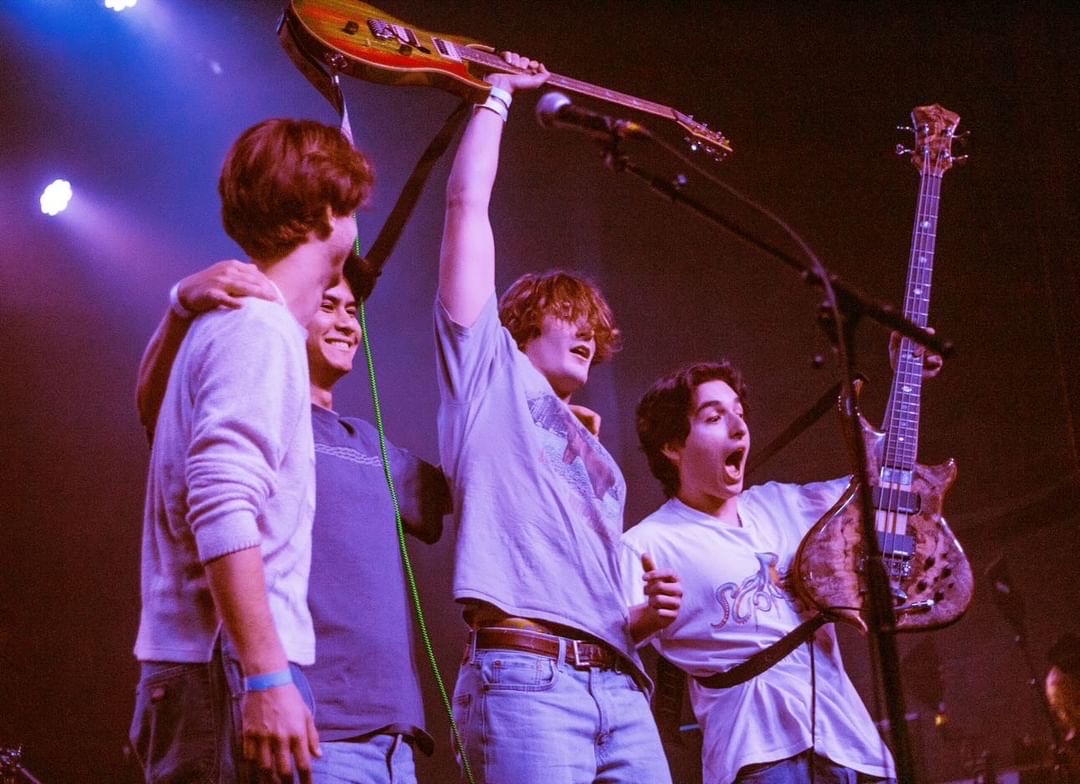Playing college sports is the dream of many athletes. College athletics gives a platform for many student-athletes to perform and compete with some of the best of the United States and the world.
Athletics departments have a responsibility to ensure that all student-athletes have a safe, inclusive and respectful environment where they can develop as students, athletes, people and members of society, regardless of their sexual orientation.
Thomas Harris, assistant athletics director for diversity, inclusion and employee engagement at the University of Arizona, said that over the past years, there wasn’t any intentional resource for LGBTQ student-athletes, but in 2018, the introduction of the Inclusive Excellence Council launched, bringing up conversations and educational programs directed to the LGBTQ+ community.
RELATED: The past and future of queer programs at the UA
IEC has held a few “Lunch and Learns” dedicated to LGBTQ+ inclusion and has promoted the Tucson Pride Parade in the UA sport facilities. The Lunch and Learns provide opportunities for open communication and creating a supportive environment.
Sofia Read, assistant director for the Commitment to an Athlete’s Total Success Life Skills program, added, “I think we are seeing positive movement of more conversations, recognition, and programming around supporting LGBTQ+ students and staff,” via email.
Eric Correa, UA junior student-athlete who openly identifies as LGBTQ+, said “what is really beautiful about the athletic department is that they just want to see you succeed inside your sport and outside of your sport as well.”
The UA athletic department works closely with the LGBTQ Resource Center on campus to learn and ask questions about how to better support LGBTQ student-athletes and staff.
Through the year, Arizona Athletics offers educational programming for coaches and staff that help them learn how to better serve LGBTQ+ student-athletes. In October, the UA athletics department would be introducing a new source of support for LGBTQ+ student-athletes and coaches in celebration of LGBTQ+ History Month.
Read mentions the importance of creating a space where athletes with various orientations can be their authentic selves.
“Sport is often referred to as the last closet, but I think (and hope) we are starting to see a shift in sport culture,” Read said. “It is cool to see so many more out and proud professional athletes that continue to normalize the presence of the LGBTQ+ community in sport and encourage acceptance.”
Correa is part of the UA men’s diving team and a member of the Student-Athlete Advisory Committee as a co-chair of Diversity and Inclusion. With this title, Correa said he wants to work with the LGBTQ+ Resource Center on campus with the vision of creating and promoting new projects in the future.
RELATED: Tucson Pride, its history and its 2020 parade
“Being a member of the LGBTQ+ community and being a student-athlete is a blessing because I get to educate others through my experience,” Correa said.
Harris mentioned how students should have candid conversations, visible alliances like social media posts, updates in policies and create an LGBTQ+ resource group to show student-athletes and staff the support by the UA athletic department.
“We must stop assuming what our student-athletes need and actually have conversations and adjust accordingly,” Harris said in an email.
The NCAA’s Office of Inclusion provides several resources. One of them is a guide that contains some of the best practices to develop and promote the inclusion of athletes identify as LGBTQ+ in college athletics.
In order to make college sports inclusive and respectful for all participants, the NCAA encourages every athletic department to work in inclusiveness programs. The UA has the SafeZone training offered by the LGBTQ+ Resource Center. In this workshop, UA community members learn definitions related to sexual orientation and other important terminology.
“Teammates can support each other by not using derogatory language, holding each other accountable, and being open minded and listening to one another,” Read said in an email.
The SafeZone training isn’t required, but it is highly encouraged for coaches to complete, according to Harris.
“At some point, I would like for us to make Safe Zone training mandatory for all coaches and staff members who serve in a student-athlete support role,” Harris said via email.
According to the NCAA Office of Inclusion guidelines, a respectful and inclusive environment brings benefits to everyone because even straight athletes can have family members or friends who are LGBTQ+. Therefore, the way the university addresses LGBTQ+ situations affects these straight athletes as well.
The NCAA Office of Inclusion guidelines state, “Straight athletes who embrace respect and inclusion as personal values gain confidence in their ability to incorporate these values in their team, work and personal relationships.”
Both Harris and Read recall the importance of teammate support. They both encourage teammates to denounce hateful behavior and language in order to build a safe environment.
“Visibility, celebration, education, and representation are all very important elements to building an inclusive environment,” Read said.
Follow the Daily Wildcat on Twitter



